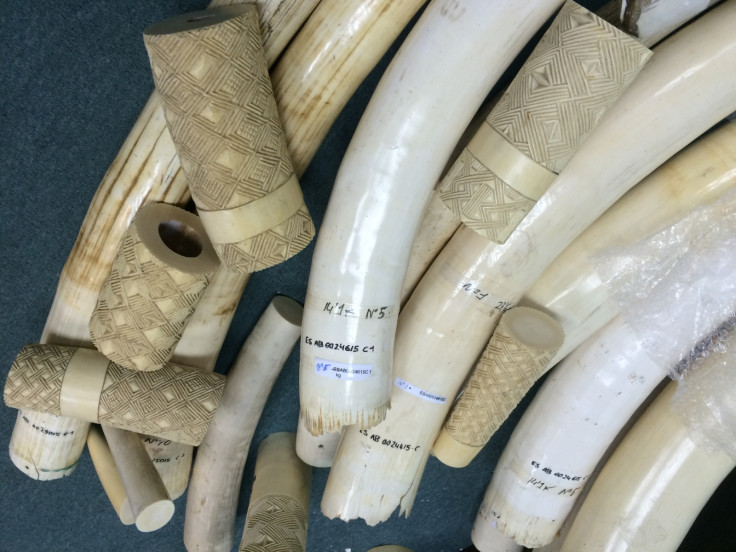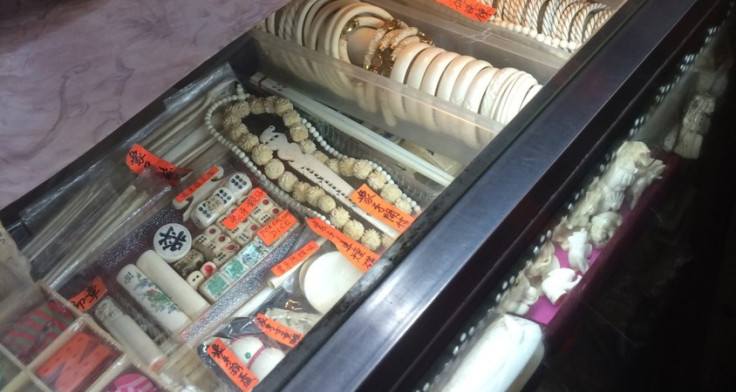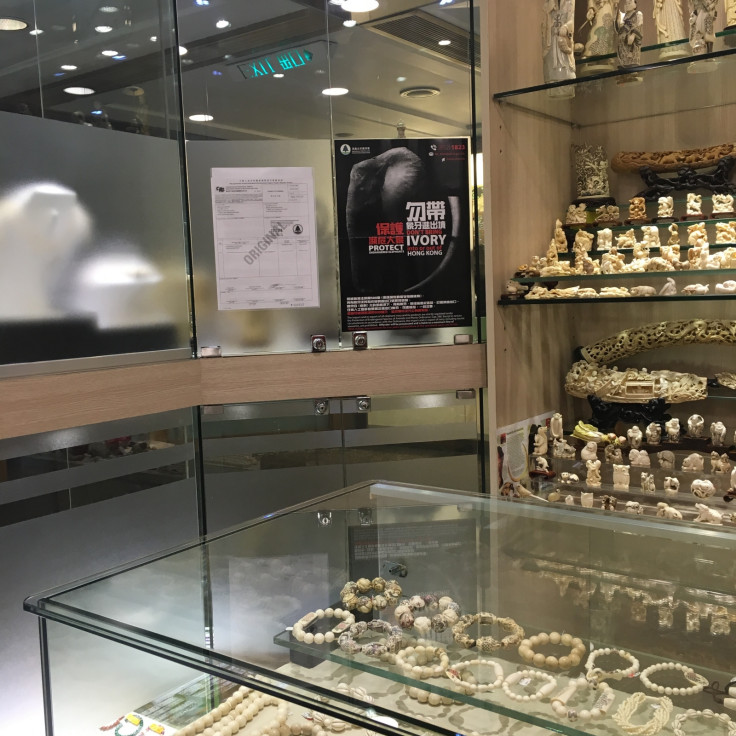A third of Hong Kong's licensed ivory traders are encouraging buyers to smuggle ivory to China
Worldwide, an elephant is poached for its ivory every 25 minutes.
Conservationists posing as buyers from China have found that 36% of Hong Kong's legal ivory traders would try to persuade the potential customers to smuggle ivory out of Hong Kong.
Selling ivory that was cut from elephants before 1990 is legal in Hong Kong, but the sale of fresh ivory is illegal. In order to take ivory out of Hong Kong, the buyer needs an export licence, which is arranged through the seller. The buyer also needs to obtain an import licence from their destination country for the transport to be legal.
Little fear of being caught
A large proportion of sellers flouted these rules, the investigation by the wildlife trade monitoring network Traffic found.
"The traders obviously feel very secure that these violations are not causing them any problems. They're not worried about being detected," Yannick Kuehl, Traffic's regional director for East Asia, told IBTimes UK.
"The other thing is that of course if you're trying to sell ivory without a licence, it begs the question of whether there is illegal ivory in the shop."
This could be ivory from elephants poached more recently than 1990, when the international ban on ivory trade came into force. Or the sellers could be trading ivory smuggled from other places, Kuehl said.
"If a trader is encouraging a buyer to buy ivory without a permit, there's a very high chance that he might have ivory that doesn't have a licence. Because there's no real economic incentive or business interest for encouraging the buyer to smuggle the ivory out of Hong Kong."

The report also found that 59% of legal traders did not display their retail licence in their shop. Traders are required by law to display the licences in an easy to find way.
"This is so every customer who comes in can see the ivory that they're selling comes from a legal source," said Kuehl. "But we saw almost two thirds of outlets didn't do that. That makes it impossible for potential buyers to determine whether or not the ivory is legal."
A trade on its way out
Worldwide, about 20,000 elephants a year – equivalent to one every 25 minutes – are poached for their ivory. Hong Kong has pledged to close down its legal ivory trade within five years, but the conservation organisation WWF says that this is not soon enough.

"Trade bans alone won't stop this illicit activity and it is vital these commitments go hand in hand with strengthened law enforcement," said Heather Sohl, WWF-UK's chief adviser on wildlife.
Cheryl Lo, senior wildlife crime officer at WWF Hong Kong, added that stronger criminal penalties for illegal ivory traders were urgently needed. "The proposal to increase maximum penalties to 10 years' imprisonment is significant and reasonable, and should be supported by legislators together with the local ivory trade ban."

© Copyright IBTimes 2024. All rights reserved.






